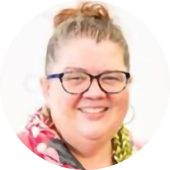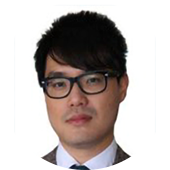Project title: Growing inclusive learning communities at UQ
Project start: 1 February 2022
Funding source: Teaching Innovation Grant, The University of Queensland
Project Members
| Professor Gwendolyn LawriePrincipal Practitioner (Inclusivity and Diversity) – Institute for Teaching and Learning Innovation Teaching-Focused Academic & Science Educator – School of Chemistry and Molecular Biosciences |
| Associate Professor Deanne GannawayAcademic Lead – Professional Learning – Institute for Teaching and Learning Innovation |
| Associate Professor Jack WangTeaching-Focused Academic, Science educator and videographer – School of Chemistry and Molecular Biosciences |
| Dr Anna KullProject Officer – School of Chemistry and Molecular Biosciences Principal Research Assistant – Academy for Medical Education |
Student Partners
Yun Zou, Bachelor of Science (Biochemistry)
Vy Nguyen, Bachelor of Psychological Sciences (Honours)
Nutyathun Worawitjarungwat, Joint International Psychology Program, BS and BA (Psychology)
Project Overview
Strong inclusive learning communities thrive when all participants perceive that they have an opportunity to contribute and that their needs are acknowledged and met. When students are provided with access and participation in learning, involving opportunities to contribute and provision of feedback, their sense of belonging in the community grows. Inclusive education (IE) is not about identifying different groups within a cohort, instead it is an approach to instructional and resource design that enables all students to access learning regardless of their individual prior learning, circumstances and needs.
UQ learning environments have recently increased in their complexity due to the strategic institutional transition into increasingly blended learning environments and the precipitous shift online due to the impact of the COVID-19 pandemic. This complexity arises from the combinations of activities, resources, modalities and technology platforms supporting both online and on-campus learning that students need to navigate. In response to these changes and to address both existing and newly emerging needs in terms of inclusivity and sense of belonging, in this project, we propose to increase the visibility and effectiveness of IE teaching and learning practices through the development of a practitioner-led professional learning (PL) module that engages and values academics’ inclusive practice. This process involves the design and evaluation of a framework that provides a foundation and mechanism to deliver course-level inclusive learning ‘health’ checks, engagement of academic practitioner leaders and strong partnerships with students. An Appreciative Inquiry approach will guide the project process focusing on the strengths in practice rather than deficits (Coghlan et al, 2003). This project’s goal is to make explicit and embed valued, productive and effective practice sustained by a community invested in inclusive education.
We plan to grow a culture of IE centred around a practitioner-informed and led professional learning module that engages academics in a self-check process of progress in inclusive practices with a view to embedding effective practice across the institution. Courses will be ‘accredited’ as UQ inclusive courses through an online course ‘inclusive health check’ tool. Reporting metrics, informed by a UQ inclusive education (UQIE) framework, will be displayed visually in the form of a continuum between minimal threshold levels to highly inclusive practices.
Project Phases
This project comprises three phases: a process of framework design, community growth and a deliverable professional learning (PL) module.
Phase 1:
Development of inclusive education framework informed by research and international practice.
A review of best international IE practice will be completed by the core team through scanning global tertiary institution websites and synthesising across recent research literature. Multiple established frameworks will be drawn on to inform the development of a UQIE framework.
Phase 2:
Development of practitioner-led PL IE module.
The Core Team will collaborate with an Enabling Team of academics, professional staff and student partners to (1) identify successful UQ exemplars of practice and (2) co-create a PL module.
Phase 3:
Embed and evaluate the UQIE PL module.
Successful IE practice relies on the integration of institutional policy, shifting campus culture, investment by all stakeholders and classroom practice (Lawrie et al, 2017). A centrally-delivered professional learning module built ground-up by practitioners and students enables a nexus to be established between evidence-based practice and institutional strategic priorities.




